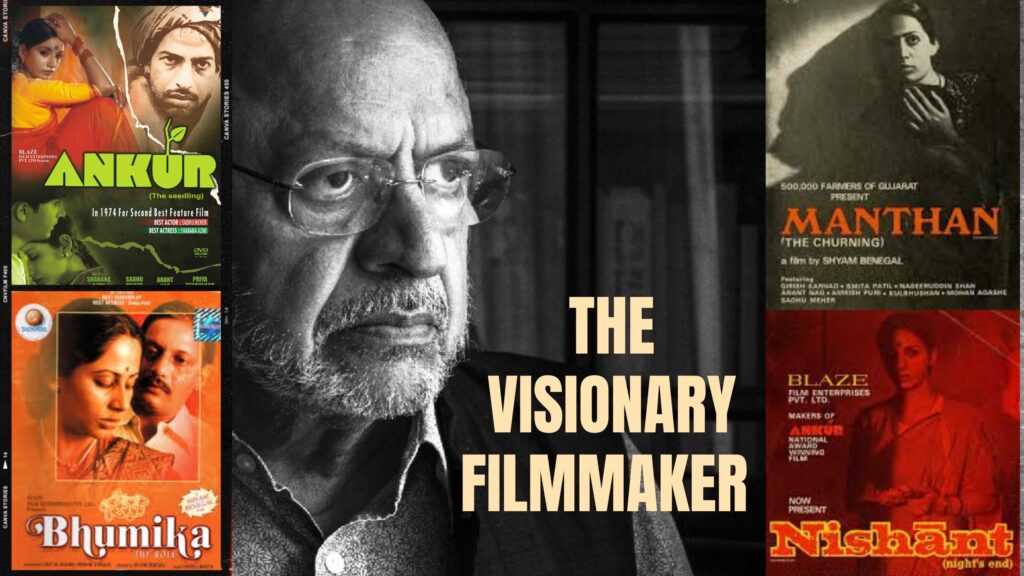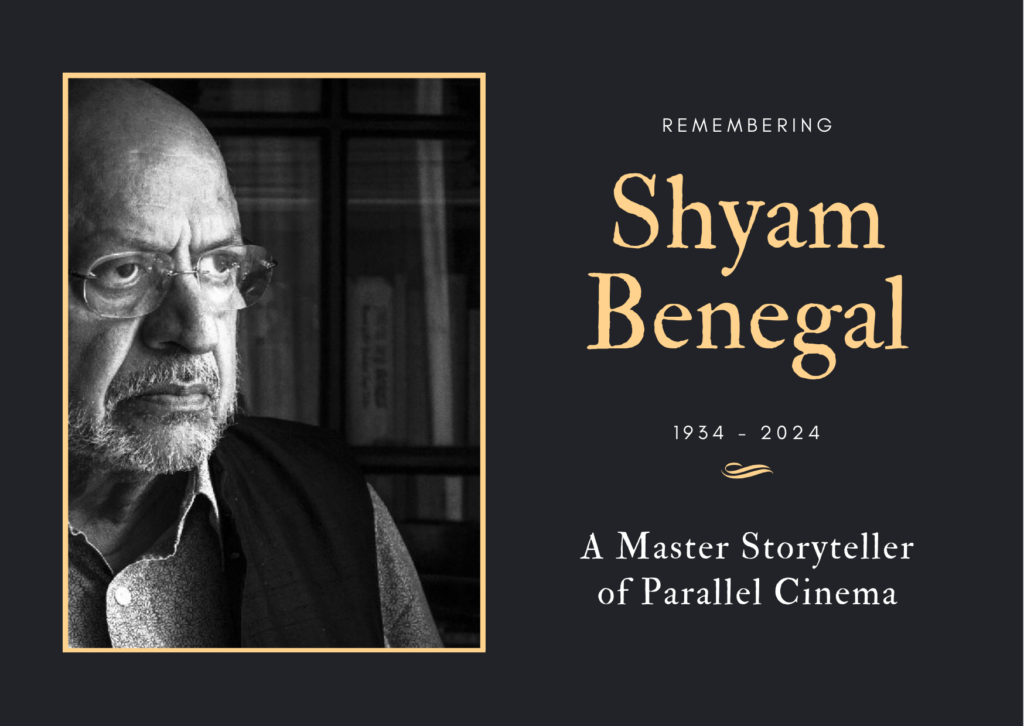Mumbai: Shyam Benegal, one of India’s most celebrated filmmakers, passed away on 23 December 2024, leaving behind a remarkable legacy that reshaped the landscape of Indian cinema. Born on 14 December 1934 in Alwal, Hyderabad State, Benegal was a pioneer of the parallel cinema movement in India. His films, known for their realistic storytelling, nuanced characters, and socially relevant themes, resonated deeply with audiences and critics alike.
Early Life and Education
Shyam Benegal’s fascination with cinema began in his formative years. He discovered filmmaking as a creative outlet while pursuing his education. After completing his Master’s degree in Economics from Osmania University, he worked in advertising before finding his true calling in cinema.
Benegal’s directorial debut, Ankur (1974), marked the beginning of his illustrious career. The film, a poignant portrayal of caste and class struggles in rural India, was lauded for its authenticity and sensitivity. It won several awards and established Benegal as a force to be reckoned with in Indian cinema.
A Master Storyteller of Parallel Cinema
Benegal’s films stood apart from mainstream Bollywood for their exploration of India’s socio-political fabric. He addressed issues such as gender inequality, caste oppression, and economic disparities with a rare honesty. His works, including Nishant (1975), Manthan (1976), and Bhumika (1977), broke new ground by delving into the lives of ordinary Indians and the struggles they faced.
The filmmaker’s collaboration with talented actors like Shabana Azmi, Smita Patil, Naseeruddin Shah, and Om Puri brought a new wave of realism to Indian cinema. Manthan was particularly notable for being funded by contributions from over 500,000 farmers, a testament to Benegal’s ability to connect with grassroots issues.

The Legacy of Historical and Cultural Narratives
Shyam Benegal’s body of work extended beyond fiction. He directed several documentaries and television series that highlighted India’s rich cultural heritage. His acclaimed television series Bharat Ek Khoj (1988), based on Jawaharlal Nehru’s The Discovery of India, is considered a landmark in Indian television history.
Benegal also explored the lives of historical figures, bringing their stories to the forefront with films like The Making of the Mahatma (1996) and Netaji Subhas Chandra Bose: The Forgotten Hero (2004). His attention to detail and commitment to authenticity ensured these works became cinematic milestones.
Awards and Honors
Over his prolific career, Shyam Benegal received numerous accolades. He was awarded the Padma Shri in 1976, the Padma Bhushan in 1991, and the Dadasaheb Phalke Award in 2005, India’s highest honor in cinema. His films won multiple National Film Awards, and he was celebrated internationally at film festivals worldwide.
A Teacher and Mentor
Beyond his filmmaking, Benegal was a mentor to aspiring filmmakers and a champion of independent cinema. He believed in nurturing talent and played a pivotal role in shaping the careers of many actors, writers, and technicians.
A Lasting Legacy
Shyam Benegal’s films continue to inspire generations of filmmakers and viewers. His work remains a masterclass in the art of storytelling, emphasizing the power of cinema to reflect and transform society.
As we bid farewell to this cinematic genius, we remember Shyam Benegal not just as a filmmaker but as a visionary who brought Indian cinema closer to its roots, creating a mirror that reflected the nation’s soul. His contributions will live on, reminding us of the profound impact of art on humanity.
Follow us on Facebook, X, YouTube & Instagram to never miss an update from The Credible India

